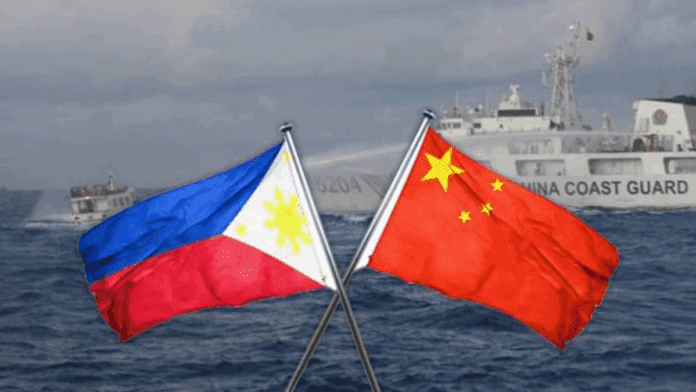China has imposed sanctions on Francis Tolentino, a former senator of the Philippines, citing what it called “egregious conduct” related to the South China Sea. The announcement came just a day after Tolentino’s six-year term in the Senate officially ended.
The Chinese foreign ministry said Tolentino made moves and statements that hurt relations between the two countries. In particular, he supported laws to define the Philippines’ sea lanes and maritime zones—steps that China strongly opposed.
A spokesperson for the Chinese foreign ministry accused certain Filipino politicians of making “malicious remarks and moves” that challenged China’s territorial claims. The ministry has banned Tolentino from entering the Chinese mainland, Hong Kong, and Macau.
“The Chinese government is firmly resolved to defend national sovereignty, security and development interests,” the spokesperson said in a statement released on Tuesday.
China’s solar meltdown deepens as U.S. tariffs trigger mass exodus to Africa, Middle East
Tolentino Calls Sanctions a “Badge of Honour”
In response, Francis Tolentino defended his actions and welcomed the sanctions as a sign that his efforts had impact. In a bold statement, he said, “No foreign power can silence me or weaken my resolve to uphold our sovereignty.”
He called the sanctions a “badge of honour” and reaffirmed his dedication to protecting the Philippines’ rights in its own waters. Tolentino also vowed to continue pushing for what he described as “what rightfully belongs to the Philippines.”
Tolentino had made maritime policy a central part of his work in the Senate. He helped author laws to better define the country’s maritime boundaries and sea routes. These laws were designed to strengthen national security and assert the Philippines’ claims in the South China Sea.
Although Tolentino lost his re-election bid in recent midterm polls, his stance on maritime sovereignty remained a key part of his political platform.
China chokes 80% of India’s fertiliser imports in silent sanctions during peak farming season
South China Sea Dispute Fuels Tensions
The South China Sea is an important global trade route. Every year, about $3 trillion worth of goods pass through it. But this sea is also heavily disputed. Several countries claim parts of it. These include the Philippines, Brunei, Vietnam, Malaysia, and Indonesia.
China claims most of the sea as its own, using what it calls the “nine-dash line” to assert control over vast areas. However, in 2016, an international tribunal ruled that China’s claims had no legal basis under international law. China rejected the ruling and continues to build artificial islands and military facilities in the disputed waters.
The Philippines has pushed back against China’s expansion, using diplomatic and legal means. Officials like Tolentino have also taken a firm stand by supporting laws to secure maritime zones within the country’s exclusive economic area.
Now, with Tolentino sanctioned, the dispute once again highlights the tensions between defending national sovereignty and maintaining diplomatic ties. China’s move is being seen as a direct message to other officials who may take similar positions in the future.
